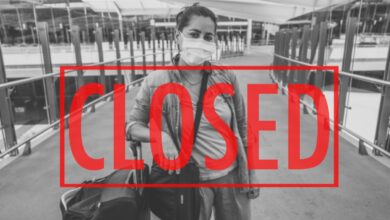A
A
A
If you’ve opened up your news app on your phone or have checked social media at all in the last few weeks, you’ve likely run into this similar headline. ‘Australia experiences one of the worst brush-fire seasons in recorded history.’ The country just halfway through the brush-fire season and this natural disaster has unfortunately shown no sign of stopping. It’s a catastrophic event, no matter who you are or where you are on the globe, so keeping up with the news is as relevant as ever. As the death toll rises, there’s no way anyone can ignore the situation in the land down under. Here are some of the latest updates regarding the Australian wildfires.
The animal death toll continues to rise as the forest fire spreads. It’s apparent that the wildlife in Australia is the biggest victim of this catastrophe. Tallying up the death toll, when including insects, leads to a shocking number nearing 1 billion. The most alarming part surrounding this news is that some species are under an even more imminent threat of extinction. The koala bear, a species already struggling to survive, has taken quite the blow due to the massive fire. This has become such a severe issue, individuals are petitioning koalas to be introduced as a new species in New Zealand to prevent their species from dying out.
But aside from this form of action, the Aussie citizens are doing what they can, from rescuing these creatures themselves from trees to providing water to these thirsty animals. Even our canine companions have joined the fight. Trained dogs are currently assisting firefighters and rescuing animals out in the field. Using their powerful noses as their guide, they can find and save more animals in need from the inferno.
Read More »
A recent development, known as Operation Rock Wallaby, has Australians dropping vegetables such as carrots and sweet potatoes from helicopters for starving animals. The fires have burned 18 million acres of land, and have destroyed precious greenery and valuable food sources for the Aussie native wallabies.
Australia commemorates firefighters with a beautiful tribute at the Sydney Opera House. As the world mourns the loss of many animals and humans, no other country feels the devastation more intensely than Australia itself. On January 11th, the country projected a tribute onto the wings of the Sydney Opera House, thanking the firefighters for their diligence and sacrifice. One such firefighter lost his life while out on the line of duty in Victoria. The fires have not hit Sydney — the capital of New South Wales — but the air quality has taken a turn for the worst.
Tourism continues to plummet at the wake of this natural disaster.
The fire is responsible for tearing down two significant economic pillars of the country — both agriculture and tourism. As expected, the news covering the intense bush fires has scared off tourists from all over the globe, causing the economy to plummet further.
The effects of climate change have worsened an already dire cycle — will we see a difference?
As temperatures rise, the situation in Australia — and countries with similar climates — will continue to face these threats. And though Australia is known for its hot and fiery season, this has been one of the worst. And it’s likely due to the rising temperatures caused by global warming. Political leaders in New South Wales declared a state of emergency in late December. But will this be enough to cause a shift in the political and social fight against global warming? The Prime Minister Scott Morrison, who has been criticized for failing to acknowledge the environmental causes of the severe fires, stated that he would call for a high level government inquiry.
He has, in the past, declined to implement policies that will reduce the country’s global emissions by switching to more environmentally sound sources of energy, frustrating some of the outraged citizens.
What you can do to help Australia? While this news is indeed devastating, here are a handful of ways everyday civilians can do their part. Organizations such as The World Wildlife Fund and the Australian Red Cross are accepting donations to support the country and its suffering wildlife.






